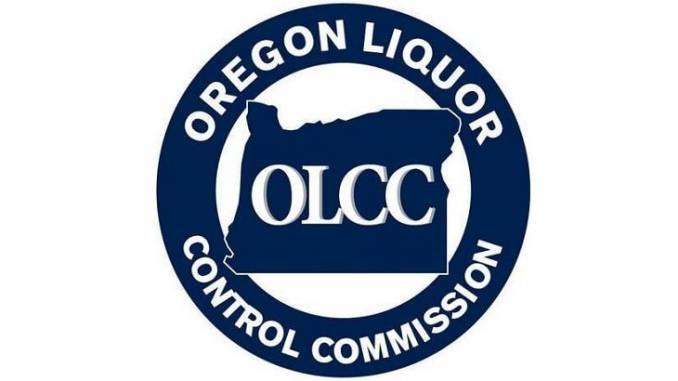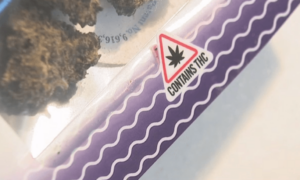OLCC Fines Portland Based Operator For Deliberately Violating Packaging And Laws

Southern Oregon legislators update Commission on illegal cannabis activity
The Oregon Liquor and Cannabis Commission unanimously agreed to fine a Portland
based recreational marijuana processor $100,000 for deliberately sidestepping packaging and labeling
rules designed to protect consumers. At its regularly scheduled meeting on October 21, 2021,
Commissioners also heard from southern Oregon legislators who remain alarmed by continued illegal
cannabis commerce linked to criminal cartels operating in Jackson and Josephine counties. The
Commission also approved three stipulated settlements with recreational marijuana licensees.
OLCC’s six commissioners voted to uphold the decision of an Oregon Administrative Law Judge (ALJ) who
found Luminous Botanicals sold small vials of a marijuana-derived THC tincture even though it was out
of compliance with OLCC rules. OLCC staff determined that the item’s labels were not properly affixed
and could fall off when used by a consumer. These unlabeled vials, with no markings indicating their
contents to be marijuana, could inadvertently be used by an unsuspecting consumer, and thus posed a
public safety issue.
“Small vials of marijuana product don’t provide any distinction on whether or not the product is from
the legal or illegal market,” said OLCC Executive Director Steve Marks. “That’s what this was about.”
The trial-sized vial of “Universal Cannabis Tonic” was labeled as having less than an ounce of the
marijuana THC containing product, or enough for two servings. However Luminous Botanicals refused to
make their labels compliant with OLCC packaging and labeling rules by properly labeling the thumb-sized
vial.
OLCC staff worked with Luminous Botanicals for more than a year to try to help the licensee devise a
compatible solution. But during this time period Luminous Botanicals continued to sell products that
violated OLCC packaging and labeling rules.
Ultimately the OLCC charged Luminous Botanicals with multiple violations – each sale of the trial-sized
vial constituted a violation. The OLCC offered to settle the case for $30,000, instead of having to pay the
maximum $100,000 penalty. Without the civil penalty cap the proposed violations would have resulted
in a proposed penalty of millions of dollars. Eventually the issue ended up before an ALJ who heard the
case in February, 2021; in August, 2021 the ALJ issued a ruling upholding the OLCC’s findings.
Arguing before the Commission, Luminous’ legal counsel said that the licensee had been exemplary in
their dealings with the OLCC, had misunderstood the rules and had made an innocent error, and
deserved leniency in the form of a warning, instead of a monetary penalty. The Commission decided
otherwise.
This past summer, in response to public outcry, the OLCC coordinated with the Oregon Department of
Agriculture, other state and local agencies, and southern Oregon law enforcement in Operation Table
Rock to crack down on illegal cannabis producers masquerading as legitimate hemp or marijuana
producers.
Operation Table Rock confirmed widely held suspicions about the illegal activity, but a bipartisan trio of
southern Oregon lawmakers shared their lingering concerns about the safety of rural residents living
near sites of illegal activity, pilfering of public and private water, and the human trafficking of workers at
illegal grow sites.
Representative Lily Morgan (R-Grants Pass) told the Commission that law enforcement is spread so thin
there’s little ability to investigate water misuse in the drought stricken area. “Water theft and water
storage and water diversion has probably been the biggest unanswered call,” said Morgan.
“We are outgunned and out resourced,” said Senator Jeff Golden (D-Ashland). According to Golden,
Southern Oregon residents fear that criminal cartels will return next year because they’ve found that it’s
easy to get away with illegal growing. “It is an all hands on deck situation and we have to secure the
resources proportional to this crisis,” he said.
Representative Pam Marsh (D-Ashland) praised the partnership with the OLCC and other state agencies
during Operation Table Rock but said additional collaboration was needed to deal with a crisis that
hasn’t subsided.
Commissioners ratified the following violation fines and suspensions based on stipulated settlements
(detailed information on specific cases can be found here on the OLCC website):
HYDROGANICS will surrender its recreational marijuana producer license for one violation, on the date
the transfer of ownership of the business is completed or on January 21, 2022, whichever is earlier.
Licensee is: Nature Based Corporation; Yen Nguyen, President/Stockholder; Men-Truc Nguyen,
Secretary/Stockholder.
HIGHLY DISTRIBUTED, a recreational marijuana wholesale licensee will receive a letter of reprimand for
two violations.
Licensee is: Highly Distributed, LLC; Jamin Giersbach, Member; Melissa Giersbach, Member.
The Commission approved restrictions to a recreational marijuana producer license for the applicants of
FLOWERS CITY. The application includes one individual who made false statements to the Commission.
The license restrictions requires the licensee to prohibit that individual from any involvement in the
operation or management of the business, or providing any services to the business, and not be on the
licensed premises at any time.
*The locations of OLCC marijuana producer, processor and wholesale licensees are exempt from public disclosure
under Oregon law.
A copy of the Stipulated Settlement Agreements for Marijuana Violation Cases can be found on the OLCC website,
on the Laws & Rules page under the Final Orders section.




































